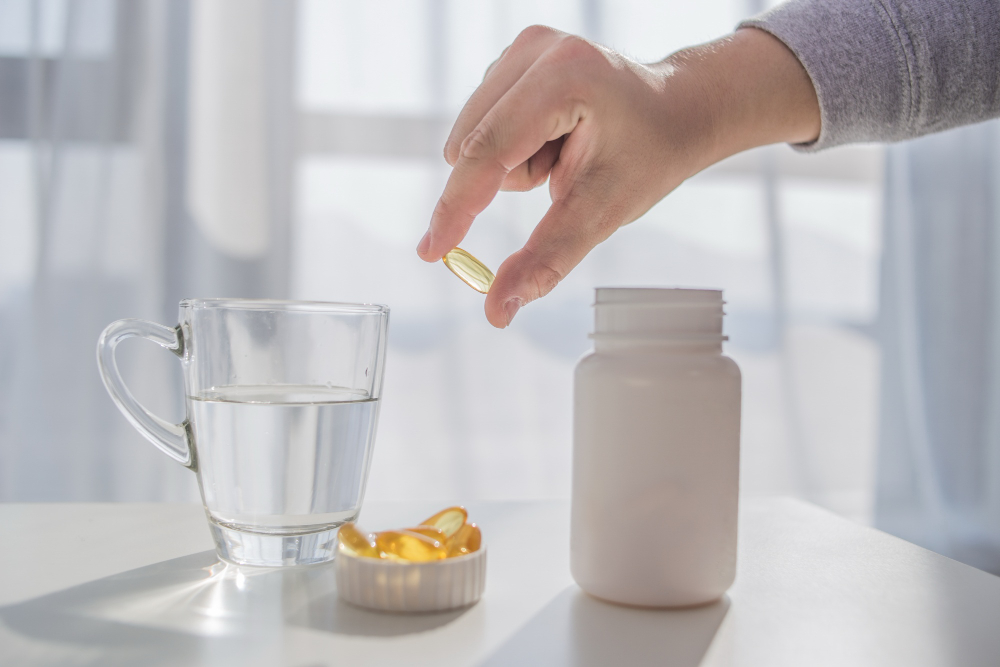
Our bodies need vitamins to function properly and maintain good health. These essential nutrients can come from different sources such as food, sunlight, or supplements. However, not everyone is getting enough vitamins they need, leading to a vitamin deficiency that can affect their well-being. In this blog post, we’ll discuss the most common signs that you are lacking specific vitamins and what you can do to address it.
One of the most common vitamin deficiencies is vitamin D. This vitamin is essential for bone health, immune system function, and cell growth. The most obvious sign of vitamin D deficiency is weakened bones, which may lead to bone pain or even fractures. People who are house-bound, breastfed babies, and older adults who spend most of their time indoors, away from the sun, are more susceptible to vitamin D deficiency. To address it, you can eat more vitamin-D rich foods like fatty fish, egg yolks, and fortified milk, or take a vitamin D supplement after consulting with your doctor.
Vitamin B12 is an important nutrient for the nervous system, red blood cell formation, and DNA synthesis. The most common sign of vitamin B12 deficiency is fatigue or lethargy, which may be accompanied by pale skin, tingling sensations in the hands and feet, or even depression. This deficiency is prevalent in vegetarians, vegans, and people who suffer from digestive problems. To overcome the lack of vitamin B12, your doctor may prescribe vitamin B12 shots, supplements, or recommend adding more animal products like meat, fish, and dairy products into your diet.
Vitamin C is known for its antioxidant properties and ability to support the immune system. A lack of vitamin C may manifest in different ways; the most common being dry or scaly skin, unusual bruising, bleeding gums, and poor wound healing. People who smoke and those who don't eat enough fruits and vegetables are more prone to vitamin C deficiency. To fix it, you can consume more vitamin C-rich foods such as oranges, strawberries, kiwi fruit, tomatoes, or add a supplement to your diet after consulting with your doctor.
Vitamin K, which is important for blood clotting, is primarily found in green leafy vegetables. A deficiency in vitamin K can lead to a bleeding disorder called vitamin K deficiency bleeding, or VKDB, which can be fatal in infants. Other signs of vitamin K deficiency include easy bruising and excessive bleeding from wounds or cuts. To avoid this deficiency, it's recommended to add more leafy greens to your diet, such as spinach, kale, or broccoli, or sometimes a doctor may prescribe a vitamin K supplement.
Vitamin E is important for healthy skin, vision, and the immune system. Although rare, vitamin E deficiency can cause nerve damage, vision problems, and ataxia, a disorder affecting balance and coordination. People with disorders affecting the digestive system such as celiac disease, cystic fibrosis, and liver disease, are more at risk of developing a vitamin E deficiency. To address it, doctors may prescribe supplements or recommend adding more vitamin E-rich foods to your diet, such as nuts, seeds, and fortified cereals.
Vitamin deficiencies can have a significant impact on your health and well-being. The symptoms can range from mild to severe, depending on the type of nutrient your body is missing. It’s important to be aware of the signs of vitamin deficiency and take steps to address them, such as adding more vitamin-rich foods to your diet or taking supplements. If you suspect that you have a vitamin deficiency, consult with your healthcare provider for proper guidance and treatment. If you're seeking primary care in Philadelphia, PA, contact Vital Urgent Care today for more information and to request an appointment.